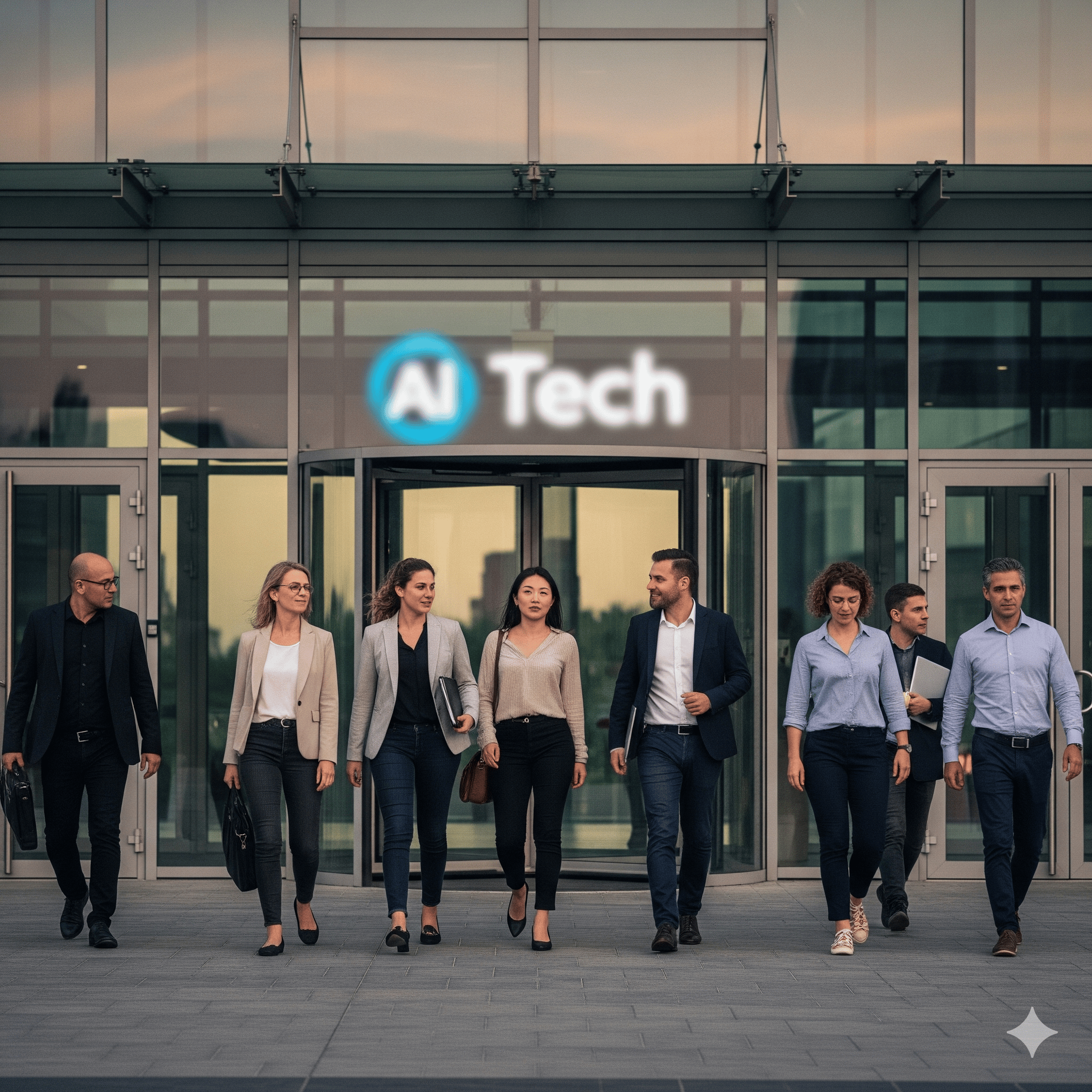Eight Meta AI Experts Leave Following Major Restructuring: A Shift in the AI Talent Landscape
Eight employees from Meta’s superintelligent AI teams have recently resigned, following the latest corporate restructuring announced by Mark Zuckerberg, according to a report by Business Insider. This development highlights ongoing shifts in the tech giant’s approach to artificial intelligence (AI) development and raises questions about talent retention in the AI sector.
Over the past months, Zuckerberg and his team have actively recruited top-tier AI talent from around the globe. The goal was to build a cutting-edge superintelligent AI division, attracting specialists in machine learning, deep learning, natural language processing (NLP), and other advanced AI technologies. Despite Meta’s substantial investment in salary packages and bonuses, some employees chose to leave, revealing the complexities of managing highly skilled AI professionals.
Meta’s AI Hiring Strategy and Talent Challenges
Meta has long been known for its ambitious AI initiatives, including projects like LLaMA (Large Language Model Meta AI) and AI-driven social media enhancements. As part of its talent acquisition strategy, Meta offered highly competitive compensation, sometimes reaching hundreds of millions of dollars, to secure AI experts with rare skill sets.
However, such spending sparked internal tensions among longstanding employees. According to the report, some veteran staff viewed the massive bonuses for newcomers as excessive, creating a wave of resentment within the company. This tension illustrates a common challenge for tech giants: balancing new talent acquisition with employee morale.
Meta confirmed that workforce attrition is normal for a company of its scale. Many of the employees leaving had been with the company for a long time, suggesting that retention in AI teams remains a significant concern, even when financial incentives are offered.
Where Meta’s AI Experts Are Headed
The departure of AI talent from Meta has created opportunities in the broader artificial intelligence ecosystem. Some high-profile moves include:
Chee Hao Wu, an AI and machine learning specialist, has joined Memories.AI, a fast-growing startup, as its Chief AI Officer. His expertise is expected to help shape Memories.AI’s cutting-edge AI solutions and intelligent systems development.
Shaya Nayak, another Meta AI expert, left to join OpenAI, further strengthening OpenAI’s technical capabilities.
Afroz Mohiuddin, a senior engineer who joined Meta last year after more than 14 years at Google, has also moved to OpenAI, contributing his experience in AI engineering and advanced machine learning research.
Reports from Wired suggest that some Meta engineers left after less than a month and quickly transitioned to OpenAI, while others joined Periodic Labs, a startup founded by former engineers from OpenAI and Google. These moves reflect a dynamic trend in the AI talent market, where mobility is high, and top engineers continuously seek innovative projects and impactful AI research opportunities.
The Competitive AI Talent Market
The exits from Meta underscore the intense competition for AI talent across the tech industry. Companies like OpenAI, Google DeepMind, Microsoft, and emerging AI startups are competing fiercely to recruit individuals with expertise in:
Natural Language Processing (NLP)
Reinforcement Learning
Generative AI
Large Language Models (LLMs)
Computer Vision and Robotics
For professionals in AI, career growth, project impact, and organizational culture often weigh as heavily as salary. This is evident in the recent transitions from Meta to startups and OpenAI, signaling that top talent seeks opportunities to work on groundbreaking AI technologies.
Implications for Meta and the AI Industry
Meta’s AI departures are more than an internal HR challenge—they have broader implications for the AI industry:
Innovation Migration: As AI experts leave large corporations, startups and smaller AI companies can accelerate innovation with newly acquired expertise.
Talent Retention Strategies: Big tech companies must rethink their employee engagement strategies, including equity incentives, career growth opportunities, and meaningful AI projects.
Global AI Ecosystem Growth: Movement of talent contributes to the globalization of AI knowledge, helping emerging AI companies compete on a global scale.
Future Outlook for AI Careers
For professionals in machine learning, deep learning, AI research, and related fields, the market remains dynamic and full of opportunities. The recent shifts at Meta highlight the importance of strategic career planning and the appeal of startups or innovative AI labs that offer impactful projects and flexible work environments.
For tech companies, the challenge is clear: retaining highly specialized AI talent requires more than lucrative bonuses. Building a positive work culture, providing challenging projects, and recognizing employee contributions are critical to keeping top engineers engaged and committed.
Conclusion
The recent resignation of eight AI specialists from Meta following Mark Zuckerberg’s restructuring signals a significant moment in the AI talent landscape. It reflects the ongoing high-stakes competition for AI expertise and the challenges large tech firms face in balancing recruitment, retention, and employee satisfaction.
As AI continues to shape industries worldwide—from automated content creation to intelligent robotics—the movement of top engineers will influence both innovation trajectories and the strategic direction of AI research. Meta’s experience serves as a case study for other companies striving to build and retain elite AI teams in an increasingly competitive global market.



